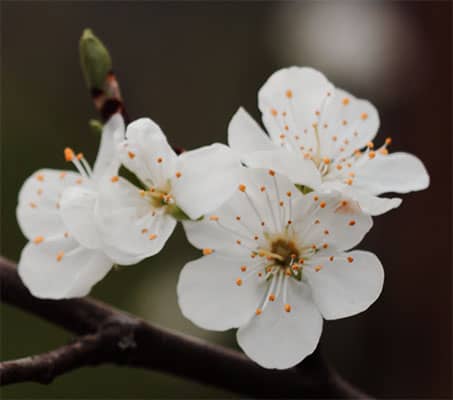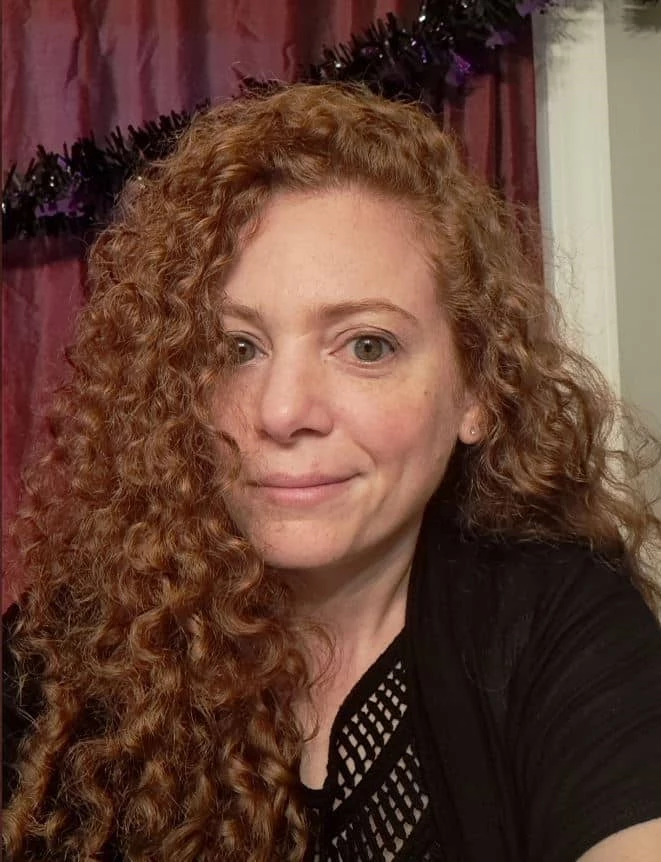
Be warned that there are multiple spoilers in this interview, so if you haven’t yet read PH Lee’s “Your Own Undoing,” I promise this interview will still be here, unchanged, when you get back. (That said, I can’t guarantee you won’t be changed when you come back.)
You’re here because you love reading. Possibly you’re like me, and you enjoy falling into a story. You enjoy the escapism. The experience of falling into a story sometimes takes the form of a voice in your head saying “Welcome home.”
When an author in control of their craft speaks directly to a reader, that reader has little choice but to become immediately invested and involved with the story. There’s no waiting to find out if you like a character or can relate to them, because you are that character. When good or bad things happen in the story, they are happening in that moment, to you. If you don’t like the story, you can simply stop reading it, but if you want to find out how the story ends, you are making the deliberate choice to trap yourself within it, giving yourself over to the writer.
But what if you could escape the story? What if the writer gave you, the reader/character, the agency to make your own choices within the narrative? I’m talking about something far more effective than the Choose Your Own Adventure books of our youth, although those make an entertaining starting point for what I’m talking about.
Besides, it’s just a story, right? You can choose to put the book down whenever you want and go back to your real life, right? But what if you couldn’t? What if you fell so far into a story that you couldn’t get out of it? And those of us who love reading, who crave the momentary escapism, are we all the more susceptible to the curse in the story?
One of my favorite things about P H Lee’s short story “Your Own Undoing” is how Lee uses the narrative to skate a meta razor’s edge of balancing a reader who knows they reside in a world “full of cars and taxes and international commodities markets and who-knows-what else” versus a narrator who is spinning an equally valid worldview. Truly, I’ve never read anything quite like this.
I’m interested to see how this story works, upon multiple rereads. The narrator was saddened that I, the reader (who had never read this story before), didn’t recognize them, and had no recollection of our first meeting. When I read this story for the fourth, or fifth, or even sixth time, will I recognize the narrator? Will I remember having already had these conversations? Or will I allow myself to fall right back into the story, right from the starting step, and allow the illusion of “no, I don’t remember,” because I want the escapism? I love how stories can transform like this.
Lee was kind enough to talk with me about the technical aspects of this story, writing the terrifying “finger” scene, their prior experiences with this type of story structure, doing favors for our past-selves, and their frustration with how popular the concept of “abusive magical mentors” was in the children’s literature that many of us grew up with.
Lee’s fiction has appeared or is forthcoming in Lightspeed, Uncanny, Clarkesworld, Beneath Ceaseless Skies, Nightmare, and elsewhere. Their fiction often touches on how intimate personal relationships can turn dark, and knowing what your options are. Lee loves fairy tales, vampires, cooking, and translating classical Chinese texts. You can follow Lee on Twitter at @P_H_Lee.
Apex Magazine: What prompted you to write this story? What were you thinking about while you were writing it?
P H Lee: This is not actually the first story I’ve written with this rough structure. I have an unpublished science fiction novel that also traps you in a hostile narrative and dares you to escape it on your own. I wrote that novel after seeing a dear friend be drawn into a cult, and both stories are intended to serve as practice in escaping cults, abusive relationships, and other situations in which a malign party has control over your own perception of reality.
As for “Your Own Undoing” specifically, I wrote it at the Odyssey Writer’s Workshop, which is an intensive six-week program. You have to write six short stories over six weeks, on top of class and critique, so there is a strong pressure to get stories done and written. In the fourth week, I was trying to brainstorm a story and realized that I could probably do a fantasy story with the same structure as the novel, but I could make it shorter and punchier. So I wrote it.
AM: What was the most fun part of this story to write? What was the hardest part to write?
PHL: The most fun to write scene was the birth of your familiar. It was a scene that I added in later in revision, so I already had the voice and the emotional range and I could write it directly without fussing over the details. Plus, your familiar is definitely the most appealing character in the story so it was great to have some space that’s just about them.
The hardest scene to write was breaking your own fingers for reasons that are probably obvious.
(Honorable mention to the future tense stuff in the last scene, though. Extended passages in future tense are always a struggle for me simply from a technical perspective.)
AM: Writing in 2nd person POV is a challenge, and you’ve pulled it off multiple times now. When you get an idea for a story, how do you know if it will work in 2nd person? Have you come across any unexpected challenges while writing in 2nd person POV?
PHL: Second person, of varying sorts, is an extremely comfortable voice for me. This is because I spent a decade and a half writing game texts for a living, and second person is the natural way of delivering instructions, at least in English. So, to be honest, I mostly write in second person unless there’s a compelling reason to write in first or third.
I think that the greatest challenge for second person writing is that even before they begin to read your story, people have all these expectations about second person fiction—that it’s esoteric or avant-garde or depersonalizing or confusing—and as a writer you have to write with enough confidence and control that the reader can set aside their preconceptions, calm down, and just enjoy the story as you’ve written it.
(Because I’m a pedant, I’d like to mention that “Your Own Undoing” is technically not written in the second person, but in first person direct address. But most people don’t differentiate between first person direct address and second person, and to be fair the difference is often minimal.)
AM: And that ending, woah! Without spoiling the ending, when you were working on this story, when did you hit on how you were going to end the story? Did the idea for the ending come first?
PHL: I knew the ending from the start because I already had the basic structure from a previous work. But I spent a long time considering whether to do a “choose your own adventure” ending, where you could stop reading at that paragraph or, after some white space, there was a description of what would happen if you didn’t listen to the familiar and kept reading the story.
In the end I decided that that wouldn’t be fair to my Odyssey classmates, since they were obligated to read it through to the end so they’d always get the “bad ending.” When I was revising the story later, I raised the possibility of introducing a split ending, and my beta readers were unanimous in telling me not to. So I didn’t.
Ultimately, this way is better. It ends on the takeaway, rather than dwelling in potential failure.
AM: A while ago, you posted on Twitter that you took some stories you had written about 15 years ago and decided to rework them. It sounds a little like cleaning out a closet! What was the experience like, to rediscover fiction you had written years ago? What was the most interesting thing you found on your hard drive?
PHL: It is very much like cleaning out of a closet, except that unlike cleaning out a closet I actually do it rather than just feel guilty that I haven’t. It’s interesting to me because for a very long time I had given up on writing fiction as a profession, and I didn’t self-identify as a fiction writer, but I was still writing fiction pretty regularly just as a thing for me and my friends to enjoy. Even when I felt had left fiction behind, fiction never really left. Writing fiction has always been a part of my life.
It’s very nice to read my stories with enough critical distance that I can evaluate them without the interference of ego and shame. Like, instead of looking at a story that fails to achieve its aims and feeling like I have to defend it, or that it’s evidence of my personal failings, I can instead look at it and go, “I see what I was trying to do there, it worked for these reasons, it didn’t work for these others,” and then go about fixing it. Which is always the dream for revision, but for me with recent stories the process is always an emotional struggle.
Cleaning up these old stories and sending them out also feels like doing a favor for my past self, which is nice. Past-me loved these stories a great deal, even though they lacked the confidence and skill to manage the submissions process. I often have an antagonistic relationship with my past and future selves, but in the end we all have to live with each other. So it’s good to take an opportunity to build bridges, or even just to be a little kind.
AM: How have your writing processes and practices changed over the years? If you could go back in time, what advice would you give to younger-author-Lee?
PHL: Practice finishing and submit more.
Finishing projects is a skill. And because the finishing naturally comes after the starting and the developing, it’s the skill that we have the least practice with. When I was younger I would often give up or restart projects when I’d written myself into a corner, but that’s counter-productive. If I’d taken more chances to practice my finishing skills, I would have had a lot more finished stories and novels, rather than a pile of mostly-done things.
I also fell into a pattern where I would submit a story, get a form rejection, and then not submit anything for five or more years. It wasn’t until I found a mentor (Rachel Swirsky, whose extraordinary “If You Were a Dinosaur, My Love” was the first story I read in Apex Magazine) who was active in the fiction world that I learned that rejection was normal, even the best writers receive a lot of rejections, and if you want a fiction career you need to have a lot of commitment to accepting rejections and resubmitting over and over. I almost certainly wouldn’t have listened to me about this, and if I had a time machine to give advice to my younger self I wouldn’t lead with writing advice, but that’s the basics.
AM: What do you like to do for fun?
PHL: I love to cook! During the quarantine I’ve been doing most of the cooking for a combined household of five people, which has been really fun and challenging.
When I have time and space for it, I also love translating classical Chinese texts, particularly Confucius and Mencius. I am in no way professional. I do it entirely as a hobby and a way to keep my language skills in shape, but it’s nice to be able to engage with prose in a different way than fiction.
AM: Who are some of your favorite writers, designers, and artists? How has their work influenced you?
PHL: I’m hugely influenced by E Nesbit, Lord Dunsany, Edgar Eager, and Carol Kendall. There’s a huge fantasy tradition in English which predates the ascension of Tolkien and his imitators, and because my mother was an author and teacher of children’s literature I was lucky enough to have these books throughout my childhood. This may not be immediately obvious in “Your Own Undoing,” which is very much not a children’s story, but is still present in the idea that fantasy is as much a tone of voice or a turn of phrase as it is world-building 10,000 years of fictional history.
“Your Own Undoing” in particular is inspired by what I think of as “abusive magical mentor stories” like Wise Child and Juniper, which were big deals during my childhood. I was always frustrated by the idea that cruelty and neglect were a necessary part of magical training, so in this story I wanted to take that cruelty and neglect seriously and look at the intergenerational effects of this kind of abusive training. Cruel mentors are such a part of our genre that they can often pass unnoticed. But even if you’re a wizard, that doesn’t mean it’s okay to abuse your apprentices!
In terms of modern writers and designers, I love T Kingfisher, Ann Leckie, Tamara Jerée, Cecelia Holland, Rachel Swirsky, Christine Love, Jon Bois, Jenna Moran, Yoon Ha Lee, Jessica Hammer. I’m not sure I can do justice to all of them in the space of an interview though.
AM: Thank you so much!












